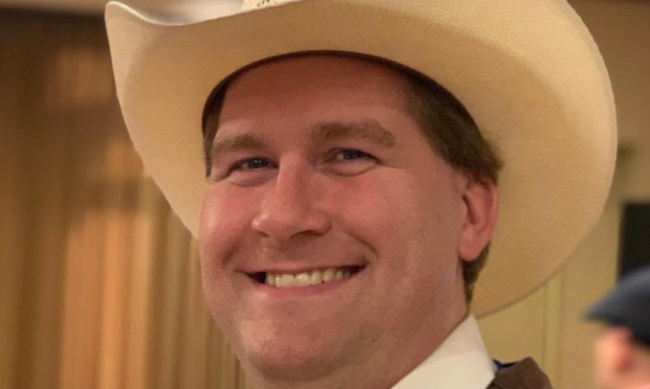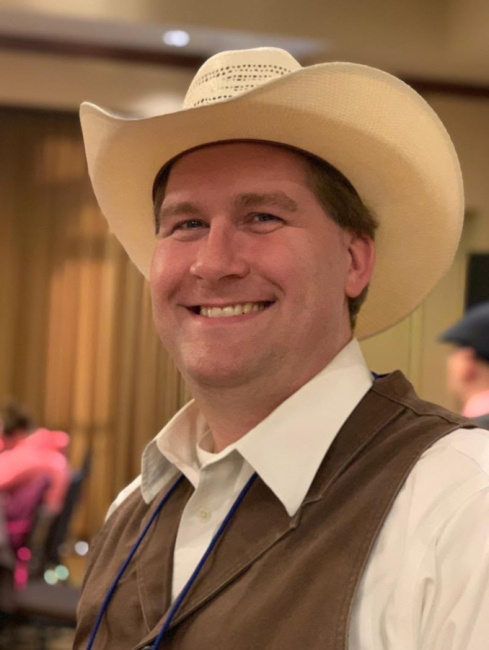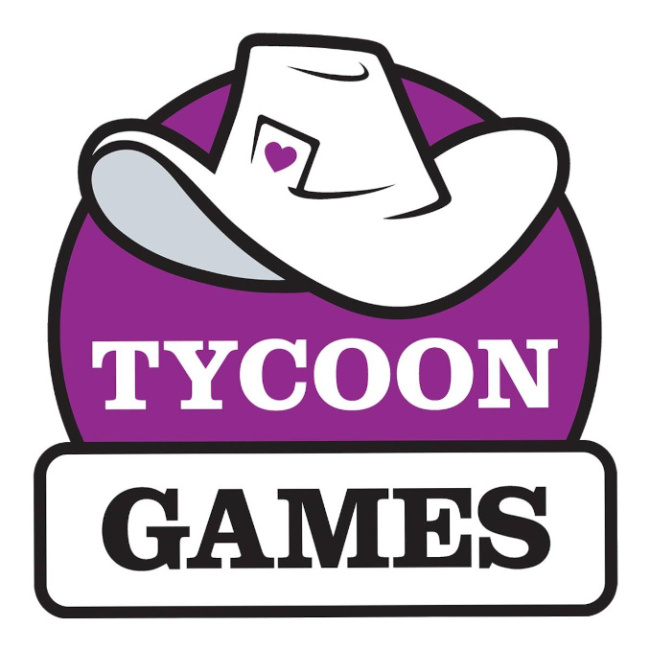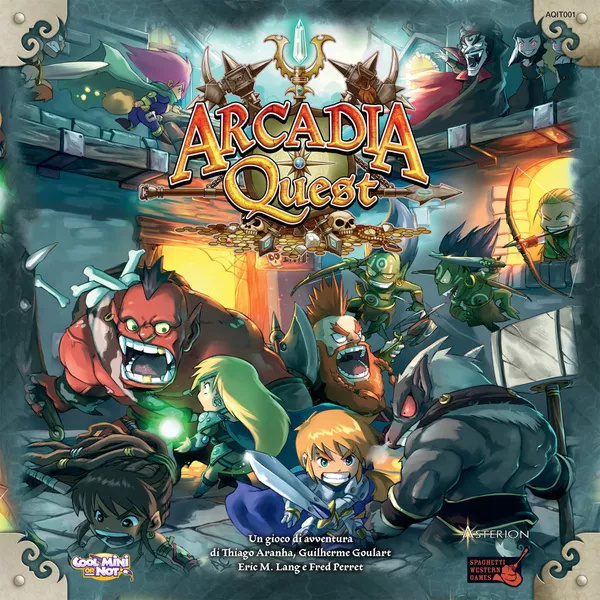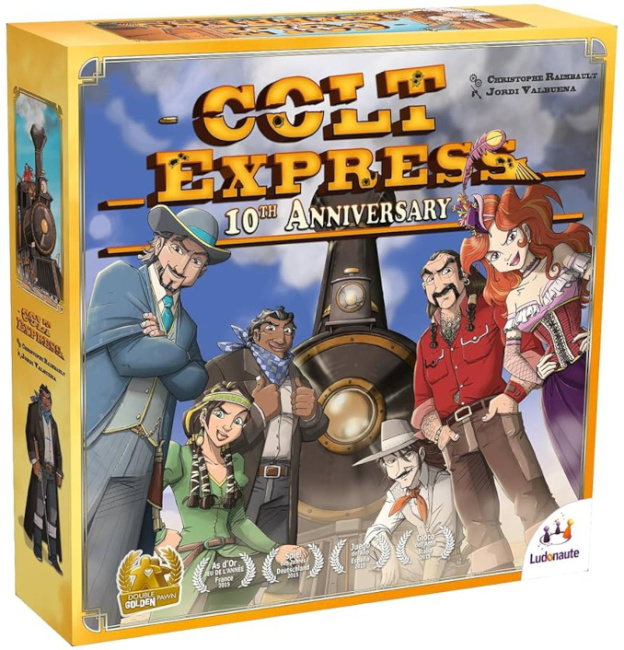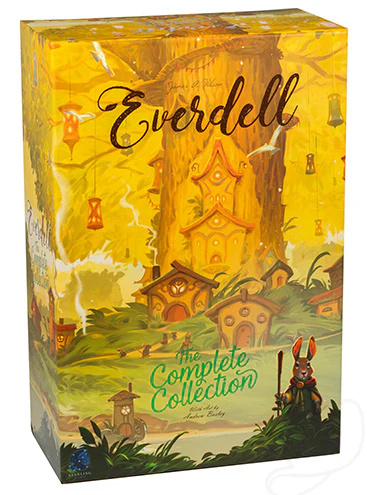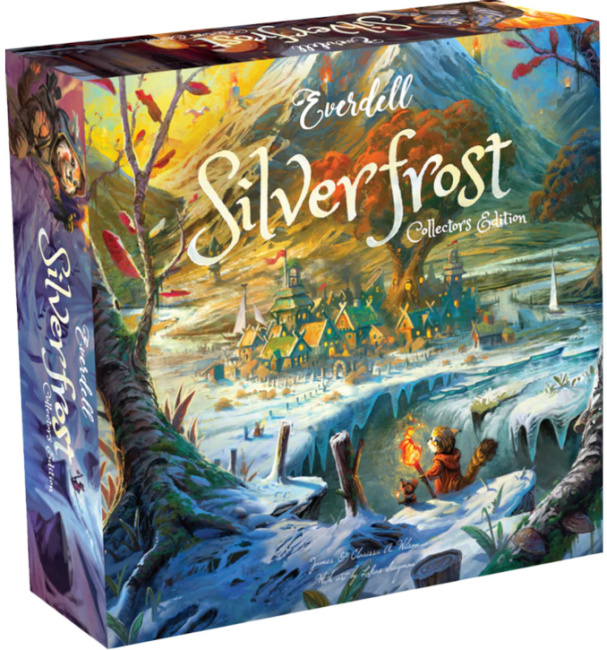We caught up with Tycoon Games CEO Dan Yarrington at Gen Con to talk about the company's string of acquisitions, plans for more, and strategy for making them more successful. Most recently, Tycoon Games acquired three games from Ludonaute (see "Tycoon Games Acquires Games from Ludonaute"). It has also rebranded itself from Tabletop Tycoon to Tycoon Games (see "Tabletop Tycoon Rebrands").
ICv2: How did your acquisition strategy begin, and how did you get to where you are now, 15 months later.
Dan Yarrington: I've been in the industry since '96. We've got a lot of experience from the ground‑up pieces, but we said, about 15 months ago, "We've got a great catalog. You know what's actually really hard to do? Creating evergreen games."
We've been fortunate that we have some evergreen games at different levels, A, B, and C‑level games from a performance standpoint. Making evergreens is really hard. You know what's easier? Buying evergreens.
We're trying to do both; we're going to make new games, and then we're also going out and we're buying evergreen lines, the IP, the intellectual property, so that we can then say, "Now we can grow that and shepherd it and all of that." That's where the theory began.
Then we did a prospecting process. We talked to a bunch of people; then you do a bunch of numbers; you get to IOIs and LOIs and all that. Eventually, you get some deals done. This happened over a long period of time.
We've been announcing one a month; the announcement timelines are a little bit specific. We're holding some data to make sure things are revealed at the right time. There's a lot of logistics to coordinate there too. Our goal is really to just grow the portfolio.
Just by saying it's the Quest series, what are you doing with it? We're going to do some other stuff. We're going to bring back Arcadia Quest and Starcadia Quest, then we're going to do something else Quest. What would that Quest thing be? Stay tuned and find out. Visit tycoongames.com and subscribe to our newsletter.
The idea is you make each of these franchises an annual celebration. That's the goal, and that keeps the line live. We can buy evergreen lines, feed those trees, help them grow, and plant other evergreen groves. That's the overall publishing strategy. The goal for us is just to build that portfolio.
Milton Bradley didn't become Milton Bradley overnight; Hasbro didn't become Hasbro overnight. They basically became Hasbro in games by buying Milton Bradley and Parker Brothers. We're not anything that grandiose. We're not an Asmodee gobbling up all these awesome games that they did over 15 years or whatever. We're a Tiny Epic Asmodee (see "Tycoon Games Acquires Gamelyn Brand").
We're just like, "We're here, doing our thing." We're finding great games that we think have really good potential, and have really good history.
We already make games ourselves that are speculative. Like, "Here, I got this really cool idea. We're going to make this game." Awesome. We're going to do that. That's high‑risk, high‑reward, but it's very difficult to do, and that’s across the industry.
So we’re paring that with: if we have more money than what we can invest in just making novelties, then we'll also deploy a bunch of that money into investing in lines and making those live again and making them really vibrant with releases every year. That's the goal.
Where are you in this pipeline of acquisitions? Are you at the beginning, the middle, or the end?
I don't think there's really an end. As we look at our strategy, we have an ongoing process. We're always talking to people. We have over a hundred prospects we've talked to, and that will continue.
A lot of these conversations, you're basically talking to people about, "Do you want to sell your livelihood."
There are all different scenarios: people could be retiring; they could just be burned out; they could be worried about tariffs or whatever. (None of these deals that we've announced so far were really impacted by tariffs at all. They were all pre‑tariffs, and we've mitigated that, we have a bunch of solutions that we deal with there.)
There's three things that have to be right for an acquisition to go right. Buyer has to want to buy. That's me. Seller has to want to sell. And the numbers have to work out for all the parties.
That's really the negotiation that we're ongoing that'll be continuing for the future. Will it be at the pace that we've done to date? I don't know. Maybe not like, but we'll see; we're not open or closed to any of that.
The model that we use, we're using existing war chest funds that we have and then we go, "Now we do crowdfunding, so we can get a lot of those funds back fairly quickly." We're not saying, "We have to make all that money back," but it really helps our cash flow and enables us to do more deals. If we can go back to market within a year and say, "Let's get a bunch of that money that we invested back right away and grow that momentum," that's what will feed that engine.
We don't have any particular number of deals we're trying to do. I said, "I will stop doing deals when I stop finding deals that are good to do." That's where it ends up being.
This is probably three to five years or longer. I just turned 44. I've got some runway left. I've been doing this my whole career, basically, since I was like 15. We can build a Tycoon empire and just have fun doing it.
That's where, on the management side, we brought in Ben Rathbone, who was formerly at Hasbro and Spin Master and Buffalo Games. He's our Managing Director. He's managing stuff day to day (see "New Managing Director at Tabletop Tycoon"). Then we brought in Andre Kieren, who was formerly at Asmodee and GW. He's our Director of Operations, central to the organization (see "Tycoon Hires Kieren"). All these folks are full‑time and in New Hampshire. We have a whole bunch of staff there in‑house.
I'm switching to more business development, so mergers and acquisitions, licensing, that sort of stuff, and product design and development. That's where I'm sitting there, with Ben, in this case, as the manager, and saying, "OK, Ben. What's our vision for Colt Express as a line? What are we going to do for that?" That's a lot of my job, is to say, "I predict that this is where they could sell," and then to adjust as we navigate through those waves, especially as we navigate through, in my case, my fourth recession in my career in this industry.
I always have to remind people that you can see this in your ICv2 Pro subscription. If you go on there, you can see that. Look at all that data over time. What happened? 2009, 2008, we had like a ‑5. Every other year, we've been growing at 5 to 10 percent. Then you just ignore 2022 and 2021 because those were 15 and 30 percent growth, were a fluke.
That just took some of the '23 and '24 growth and put it earlier.
Correct. Now, if you look back, if you look at the latest report, you'll see everything's bad. People are seeing, in their business, it's down. No. Go back to 2019, pre‑COVID. You're up 69 percent, that's what you're up. That's incredible! That's amazing! We don't have to grow at some crazy rate.
I don't think we're going to see the collapse, as an industry, that you saw in video games, where they just go, "Our whole value proposition is off. We just can't make this work, all these AAA titles." What you're going to see is a rebalancing: more indie studios, more things like Stardew Valley, stuff like that, that are lower‑budget.
In board games, we're just such a good value, that's been the case forever. Let's say the new Blood Rage is $125 list price; do you have any idea what the value of that is as an entertainment piece? It's super‑high.
Even though people complain about, "If the D&D 'Player's Handbook, adjusted for inflation since the 1970s, was the correct price, it'd be $200." That's nonsense. What is a reasonable price? We make product. We put it in the market. The consumers decide, is this a good value, and they pay for it, or they don't. That's how we determine if we made a good thing, if we succeeded.
That's our goal overall, is to make sure that we're providing more fun, providing more opportunities, and we want to feed that engine. We always said, "We make games, we sell games and we give games," because all our sales benefit kids. Now we're adding another step. We buy games so we can make more games and sell more games and give more games. That's a virtuous cycle. That's a flywheel effect that we can run for as long as we want, basically.
What is your strategy in terms of managing these IPs that you're buying, both in expansions versus extensions and then in number of SKUs?
We're doing what I call SKU deproliferation. It's good for nuclear warheads, and it's good for board games. There's too many lines. If we pick up a line and it has 85 SKUs because it has promo dice and promo cards and all this stuff, we're going to take that line, we're going to look at what's selling well in that line across the world and across the history of the line, and then we're going to say, "Let's try and consolidate a bunch of these things."
There might be certain things we discontinue. There are certain things we consolidate. We could take three SKUs and make it one. Then we'll bring those new additions out to the market. That should get something from like 87 SKUs down to like 22 or something, which is a much more manageable number.
Then we'll do packaging reorganization as we go. The package is what gets you to pick up the box, which is what gets you into the game at the end of the day. If we're on the shelf of Barnes & Noble, A, we have to get on the shelf of Barnes & Noble. If we don't have the right packaging, we're not going to do that.
We have to redesign some packaging, redo some art sometimes, and then just reorient things as far as packaging size. Make sure the value is there for the consumer at home. That was a point of feedback we took from our Everdell Complete Collection: "Doesn't fit on my shelf." We said, "Put it on top of your shelf, how many of these games do you have?” We want those things to all fit for the consumer, for the retailer, and to be a good value when you pick it up.
A lot of it is packaging, presentation. Obviously, we pay attention to price points, then we have to navigate through all that. We sell to about 60 distributors, including internationally, so we also look at where we can take a SKU, for instance, and say, "Can we just make one SKU that's all the language‑neutral bonus stuff?"
If I have a bunch of metal dice or tokens or I have special laser‑printed wood that doesn't have language on it, great. I can sell that one SKU to the whole world. The 25 different languages that we're in, I can just sell that one SKU.
For them, it's much easier. They can just go, "Great. Maybe I only need 200 for Italian or something." Now they can buy it as opposed to doing a minimum print run of 1,000 or 2,000. That's another way that we SKU-deproliferate.
Are you going to focus on expansions for games or standalone games?
My real focus is to have what I call sequels, which are standalone games, and fewer extensions, as they would say in Europe, or expansions, as we would say here. They are expanding the world, but they're expanding in the way that if you want to pick up Everdell Silverfrost, you can pick that up and play it, and you don't need Everdell.
The original Everdell, we have a bunch of expansions. Those aren't going to go away, but for new things that we're developing, we're saying, "We want to make standalone things."
It's much more important for supply chain management as things get rockier. It seems like we've been through this maelstrom the last five years. Especially, can we get product at all? Can it get imported? Is it going to be tariffed at 145 percent?
If you run out of stock, that disruption will make your supply chain more unstable. Then I'm out of, let's say, Ticket to Ride ‑ Europe, but I have Ticket to Ride, where you can still buy that, or vice versa. You're not like, "I have all these map packs now for Ticket to Ride that I can't sell because I don't have any expansions."
While we do have expansions now, our strategy is to focus on fewer SKUs on a regular cadence, regular schedule, and make sure that people can actually appreciate them, enjoy them, live through them, and then look forward to the next thing in that series. That might be a different game in that world, or it might be a standalone sequel for that, very much like Lost Ruins of Arnak. I think they have the roll‑and‑write versions, but they're standalone. Then they have expansions for the base game. I would prefer to do sequels that anybody can jump onto. Dune Imperium - Uprising is a good example of that too. That's more where we're going to lean.
It's not that we'll never do extensions or expansions or promos or anything, it's just that we want to reduce the number of SKUs. That usually creates a better value for the customer as well, which is really important.



